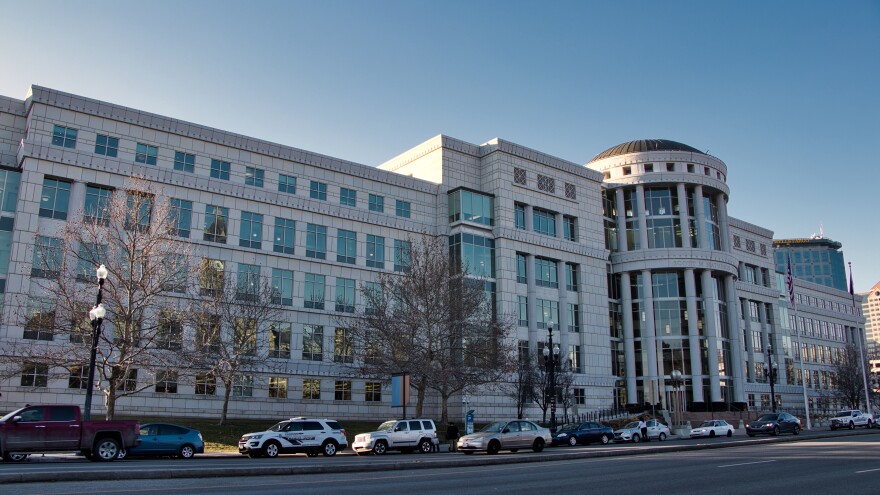The Utah Supreme Court will hear arguments Monday morning against a controversial legislative rewrite of a voter-approved medical marijuana law.
Lawmakers passed the replacement law, known as the Utah Medical Cannabis Act, in a special session on Dec. 3 — less than a month after voters approved Prop 2 in the November election.
A group of about 50 Utahns are challenging the legislature’s version of the law, which put tighter state controls over the drug’s cultivation and distribution.
Utah law gives citizens power to enact laws through ballot initiatives, but it also provides the legislature authority to change those initiatives the same as any other law.
“Either the people are co-equal or they’re not,” said Steven Maxfield, one of the dozens of citizens suing over the changes. “I think that it’s a laughing joke to think that the people are equal with the legislature.”
The Kanosh resident plans to argue in court Monday that the legislature has a history of changing laws enacted through ballot initiatives. He cited an initiative approved by voters in 2000 that reformed the state’s civil asset forfeiture laws, scaling back law enforcement’s ability to seize property they suspect may have been involved in a crime. The reforms were subsequently scaled back by lawmakers over several years.
Maxfield says he’s encouraged by the fact that the Utah Supreme Court decided to hear the case and hopes that ballot initiatives will be “treated with equal dignity under the law.”
Republican lawmakers including former House Speaker Greg Hughes and Gov. Gary Herbert unveiled plans to change state cannabis laws in August, 2018. They said they would implement the new law whether or not Proposition 2 passed.
The Utah Medical Cannabis Act passed both chambers in a special session with a referendum-proof two-thirds majority. It implements tighter state regulation over the cultivation, processing and distribution of cannabis and allows the drug to be distributed through local health departments as well as dispensaries known as “medical cannabis pharmacies.”
Unlike voter-approved Proposition 2, the Medical Cannabis Act requires cannabis flower be sold in blister packs and limits edibles to square-shaped gummies and lozenges. It also limits access to marijuana to only patients with chronic pain and conditions including Alzheimer’s, cancer, HIV, Crohn’s disease, and others. Those with pain that lasts less than two weeks or is treatable with over the counter drugs won't qualify for a medical marijuana card under the legislative rewrite.
Herbert called the new version “the best-designed medical cannabis program in the country” when he signed it into law the same day it was passed.
“Working with trained medical professionals, qualified patients in Utah will be able to receive quality-controlled cannabis products from a licensed pharmacist in medical dosage form. And this will be done in a way that prevents diversion of product into a black market,” he said.
A separate lawsuit filed by medical cannabis patients late last year is pending in Salt Lake District Court.





